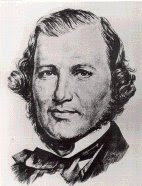One often encounters in the study of psychology the claim that human actions are the product of two (and only two) competing forces: nature and nurture. On the one hand, proponents of the nature view suggest that human beings are reacting primarily to the contents of their genetic structure. In this perspective, genes tell you everything you need to know about a person. Conversely, the nurture view suggests that human beings cannot operate beyond their upbringing and environment and that it is, in fact, these external forces that are responsible for our actions.
Both perspectives obfuscate the requirement of individual responsibility by ignoring the fact of volition.
Human decision-making is a fundamentally volitional process. Men cannot act on instinct; every action begins in a man’s mind and is deliberately chosen. The genetic structure of an individual provides certain influences – or factors – that must be taken into account in the ultimate decision to act in a certain way. For example, a strong genetic propensity towards diabetes might lead an individual to treat sugars in a way that one without such a propensity would not. However, a propensity towards diabetes does not produce automatic action; it merely provides the individual with an important factor to consider when reaching a decision to act.
Nurture cannot provide us with automatic action either. External stimuli are facts of reality to be perceived, evaluated, and considered in the process of decision-making. And they certainly do exert themselves upon us. But conceptual organisms cannot respond to these stimuli mechanically. In the same way as with genetic predispositions, humans must integrate these environmental factors into the overall structure of their thought process. Consequently, the fact of volition remains essential.
Those who point to individuals with relatively poor brain functioning as examples of the primacy of nature are missing the point. Differences of intelligence among individuals are differences of degree and not of kind. As such, these individuals are still fundamentally volitional organisms who require a process of thought for all their decisions.
The nurture advocates, in my estimation, are slightly closer to the mark. Education, indoctrination, and conditioning in a child’s formative period can affect his psychology and psycho-epistemology in incredibly profound ways. To a certain extent, genetic forces can direct a person’s growth and cognitive processes as well. However, the fundamental fact of volition remains unaltered. All influences in a person’s life are merely that: influences. The responsibility for weighing those factors against the facts of reality and of choosing one possible course of action among all the available alternatives rests solely – and must rest solely – on the individual.
This is the crucial fact that is ignored in the nature vs. nurture literature and is the source of this false dichotomy.












|